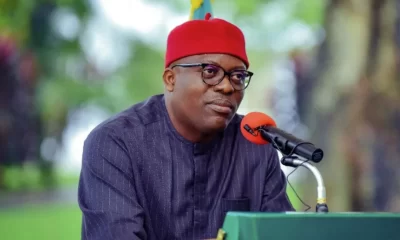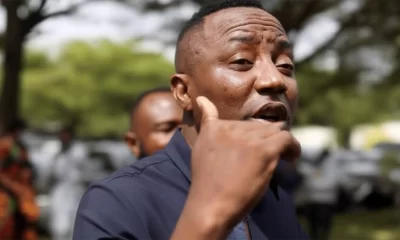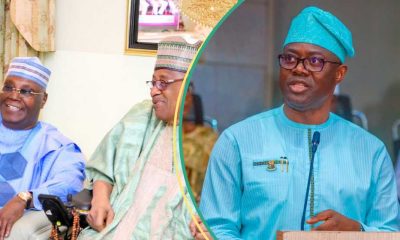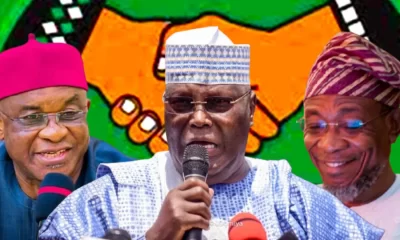The negative human rights record of the President Muhammadu Buhari-led federal government is threatening Nigeria’s war on terror as US lawmakers are considering blocking sale of weapons to Nigeria.
Recall that the Catholic Bishop of Sokoto, Most Revd Matthew Kukah, had earlier in the month during a virtual presentation to the Tom Lantos Human Rights Commission in Washington, DC, accused the federal government of not protecting Christians being persecuted in Nigeria by armed extremist groups in the North.
It was gathered that top Democrats and Republicans in the US Senate Foreign Relations Committee on Wednesday, delayed clearing a proposed sale of 12 AH-1 Cobra attack helicopters and accompanying defense systems to the Nigerian military.
READ ALSO: Presidential aide explains why Buhari will continue London medical vac—for life
This development reinforced growing misgivings in Washington regarding US relationship with Nigeria over claims of high-handedness by the President Muhammadu Buhari’s administration.
Criticisms have trailed various decisions by the Nigerian govt — with the ban on Twitter, systemic corruption issues, and the Nigerian military’s role in deadly crackdowns on protesters after widespread demonstrations against police brutality in 2020.
Sen. Bob Menendez, chairperson of the Senate Foreign Relations Committee, called for a “fundamental rethink of the framework of our overall engagement” with Nigeria during a Senate hearing with U.S. Secretary of State Antony Blinken in June.
Both Menendez and Sen. Jim Risch, the top Republican on the Senate Foreign Relations Committee, have reportedly placed a hold on the proposed arms sale.
Nigeria has relied on U.S. arms sales in the past to help address multiple security challenges: the 12-year insurgency by Boko Haram militants in the country’s northeast, a spate of high-profile kidnapping-for-ransom campaigns targeting schoolchildren in the country’s northwest, and deadly clashes between the country’s semi-nomadic herders and farmers fuelled by climate change and environmental degradation of the country’s arable land, have made insecurity issues worse.
READ ALSO: Persecution of Christians: HURIWA backs Bishop Kukah
The State Department describes the U.S.-Nigeria relationship as “among the most important in sub-Saharan Africa” and has provided limited funding for various military training and education programs.
Nonetheless, policy experts have opined that the USA will institute a comprehensive review of its defence sales regarding whether the Nigerian military is doing enough to minimize civilian casualties in its campaign against Boko Haram and other violent insurrectionists.
“There is a culture of impunity that exists around abuses by the military,” said Anietie Ewang, the Nigeria researcher at Human Rights Watch.
Ewang cited the Nigerian military’s killing of unarmed protesters during the country’s massive #EndSARS demonstrations against police corruption and brutality last year as well as cases documented by human rights organizations of abuses in the military’s campaign against Boko Haram.
“I’m sure it’s a difficult situation. There are so many conflicts springing up across the country now,” Ewang said. “The authorities, I presume, are trying to do the best they can to save lives and properties. But this must be done in accordance with human rights standards. You can’t throw one out just to be able to achieve the other.”

 Featured7 days ago
Featured7 days ago
 Latest1 week ago
Latest1 week ago
 Latest1 week ago
Latest1 week ago
 Business7 days ago
Business7 days ago
 News5 days ago
News5 days ago
 Football7 days ago
Football7 days ago
 Latest7 days ago
Latest7 days ago
 Football7 days ago
Football7 days ago

